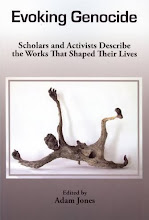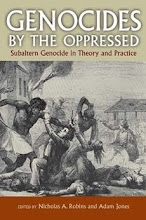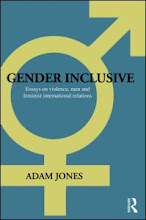Silence Lifted: The Untold Stories of Rape during the Holocaust
By Jessica Ravitz
CNN.com, June 24, 2011
"The soldiers came for her at night. They took the girl to a barrack and forced her to watch a woman get raped. The drunken men then set loose a dog to rip off the raped woman's breasts. Blood was everywhere. The woman passed out. The young witness was next. Five soldiers held her down and took turns raping and sodomizing her. They spilled alcohol on her. They laughed. They said they'd kill her. She didn't yet have breasts for the dog to attack. Later, her sister cleaned her up, but they didn't speak about what had happened. No one talked about such things. They didn't have to. Or maybe they couldn't. The Congo? The former Yugoslavia? Libya? These allegations might have emerged from conflicts in any of these places. But this brutal testimony reaches back more than 65 years to the Holocaust -- more than half a century before the United Nations declared rape a war crime. Stories like this have the power to shock even those who think they know Holocaust history. The reason: They haven't been widely discussed. Is that because victims didn't share these accounts? Did interviewers not ask the right questions? Or have influences -- both within academia and the Jewish community -- served to sweep such accounts under the historical rug? A growing movement wants to peel back that rug.
Scholars are revisiting old testimonies and documents -- and seeking new ones. Authors have published works to inspire conversation. Psychologists want to help survivors heal from their secrets. Activists, including feminist writer and organizer Gloria Steinem, hope these victims of the distant past can help shape a better future. But the topic of sexual violence during the Holocaust is fraught with controversy. Some observers believe it's a subject not sufficiently widespread or proven to warrant broad attention. Others fear it's driven by a microscopic view that deflects focus from what needs to be remembered. And still others feel that by pushing the issue, it may harm survivors who've suffered enough. What everyone can agree on is this: When it comes to learning from those who lived through the Holocaust, time is running out. [...]"
[n.b. Thanks to Jo Jones for bringing this source to my attention.]
Friday, June 24, 2011
Subscribe to:
Post Comments (Atom)














No comments:
Post a Comment
Please be constructive in your comments. - AJ